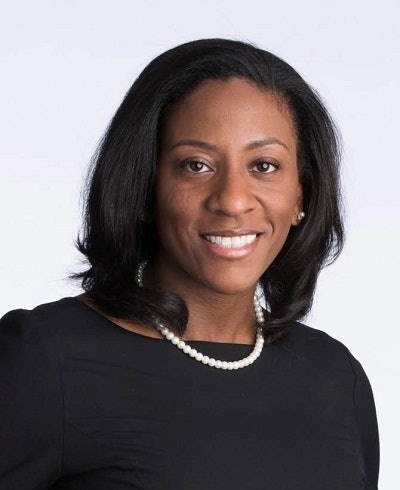A new report from The Century Foundation tracks how more than a century of spending inequities — from 1890’s Morrill Act establishing federal funds for land-grant institutions all the way through to federal funding cuts to HBCUs in 2015 and numerous policies in between — have negatively impacted endowments at historically Black institutions. Denise Smith
Denise Smith
The report found that the average endowment at non-HBCUs was 3.5 times larger than the average endowment at HBCUs. At private institutions, the gap is more than 7 times larger.
Denise Smith is a senior fellow at The Century Foundation, a two-time HBCU alumna, and author of the report. She said national leaders are quick to extol the virtues of historically Black colleges and institutions, but their actions rarely line up with the rhetoric.
“HBCUs right now are having a moment,” she said. “I think it’s an opportunity now to not only give praise, but also for action to match that praise.”
She expressed support for the Ignite HBCU Excellence Act, which has bipartisan support and would provide additional funds for infrastructure, technology, and education at HBCUs, but said Congress needs to do more. In her report, Smith recommends that Congress appropriate $40 billion of the $53 billion needed to eliminate parent and student debt, which she says is a direct result of the chronic underfunding of these institutions.
“Given the historic injustices and underinvestment in Black communities specifically and the colleges and universities that serve them, the proposals [of Congress and the Biden administration] do not go far enough,” the report’s introduction reads. “Now is the moment for a historic investment that will bring unprecedented resources to HBCUs, giving them the stability and financial independence that will propel them from this moment of recognition to excellence that endures.
“While we’re excited about their investments and the recommendations that they’ve made, we need to ask for more in order to see the playing field leveled,” Smith said.
Still, despite the funding and wealth disparities, HBCUs continue to be vehicles of upward mobility for African-Americans. And while Smith says she’s seen many proposals focus on increasing aid to institutions, she says discussion around boosting institutional endowments is often missing from the national conversation.
“Much like the racial wealth gap, our ongoing short-changing of HBCUs and failure to address historical funding gaps have forced HBCUs to operate today at a severe disadvantage. It’s time to fix that,” she said. “Public policy has created the higher ed system as it is — public policy created these ginormous disparities between HBCUs [and PWIs], so it’s imperative that public policy is required to fix them.”
Dr. Leonard Haynes III, a former HBCU administrator and previous executive director of the White House Initiative on Historically Black Colleges and Universities, says the conversation cannot stop at funding. To truly right the historical wrongs, he says, HBCUs have to be brought into key conversations around addressing strategic priorities facing their immediate locations, states, and the nation. Calling them “underutilized assets that should be engaged to address critical priorities,” Haynes said, “Failure to properly engage HBCUs as a key part of a compelling strategy compromises the national security.”
It’s also time to look beyond the deficit narrative that’s been projected on the institutions, Smith added, and “continue to tell the story of our successes and what the institutions do so well."
"No longer should we continue to have this conversation about relevancy, but we should be uplifting and highlighting the successes we’ve had in the communities," she said. "Being able to tell our story well is key.”


















